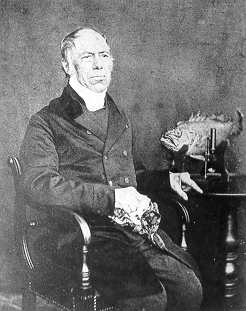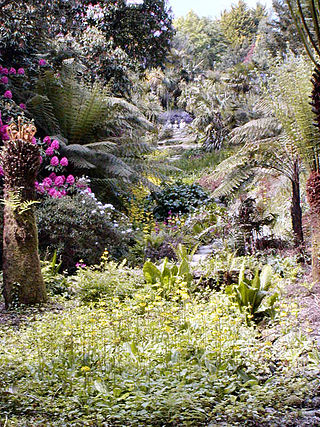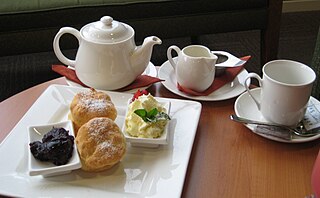| 'Dufflin' | |
|---|---|
| Species | Malus domestica |
| Origin | |
Dufflin is an old variety of cider apple from the County of Cornwall, England. It was included in orchard trials by Long Ashton Research Station in 1957. [1]
| 'Dufflin' | |
|---|---|
| Species | Malus domestica |
| Origin | |
Dufflin is an old variety of cider apple from the County of Cornwall, England. It was included in orchard trials by Long Ashton Research Station in 1957. [1]
In the 19th century they were known to be growing in the area around Kea near Truro. [2]
This variety has a high sugar content, adding sweetness to the bittersharp flavour. Due to these equalities, it has been prized for making and blending cider. [3] The trees are vigorous croppers and is also resistant to apple scab. [4] It has a heavy, russeted skin and soft flesh. [5]
Dufflin cider mentioned in a story by the Cornish writer, Sir Arthur Thomas Quiller-Couch, in his book, "Ia, and other tales" , which was published by Bernhard Tauchnitz, Leipzig in 1896. [6] In the story the main character: Ia Rosemundy, spills Dufflin cider on Rev Paul Heathcote, a visiting preacher. [7]
Perry is an alcoholic beverage made from fermented pears, traditionally in England, particularly Gloucestershire, Herefordshire, and Worcestershire, parts of South Wales and France, especially Normandy and Anjou, Canada, Australia and New Zealand.

Sir Arthur Thomas Quiller-Couch was a British writer who published using the pseudonym Q. Although a prolific novelist, he is remembered mainly for the monumental publication The Oxford Book of English Verse 1250–1900 and for his literary criticism. He influenced many who never met him, including American writer Helene Hanff, author of 84, Charing Cross Road and its sequel, Q's Legacy. His Oxford Book of English Verse was a favourite of John Mortimer's fictional character Horace Rumpole.

Wassail is a beverage made from hot mulled cider, ale, or wine and spices, drunk traditionally as an integral part of wassailing, an ancient English Yuletide drinking ritual and salutation either involved in door-to-door charity-giving or used to ensure a good harvest the following year.

Cider apples are a group of apple cultivars grown for their use in the production of cider. Cider apples are distinguished from "cookers" and "eaters", or dessert apples, by their bitterness or dryness of flavour, qualities which make the fruit unpalatable but can be useful in cidermaking. Some apples are considered to occupy more than one category.

Tardebigge is a village in Worcestershire, England.

The culture of Cornwall forms part of the culture of the United Kingdom, but has distinct customs, traditions and peculiarities. Cornwall has many strong local traditions. After many years of decline, Cornish culture has undergone a strong revival, and many groups exist to promote Cornwall's culture and language today.

The Cornish Gilliflower is a cultivar of apple.
Margaret Ann Courtney was an English poet and folklorist based in Penzance, Cornwall.

Jonathan Couch was a British naturalist, the only child of Richard and Philippa Couch, of a family long resident at Polperro, a small fishing village between Looe and Fowey, on the south coast of Cornwall. A blue plaque on the wall of Warren cottage commemorates his birthplace.

Cornwall is the county that forms the tip of the southwestern peninsula of England; this area has a mild and warm climate regulated by the Gulf Stream. The mild climate allows rich plant cover, such as palm trees in the far south and west of the county and in the Isles of Scilly, due to sub-tropical conditions in the summer.

The Kingston Black, also known as Black Taunton, is a cultivar of apple originating from the United Kingdom and used in making cider. The name of the cultivar comes from the apples' dark red or purplish skin, though despite the name, the fruit does not have a black hue.

The Foxwhelp is a very old cider apple cultivar, originating in the west Midlands of England.

The Styre or Stire, also known as the Forest Styre, was an old English variety of cider apple which was formerly common in the Forest of Dean. It is currently thought to be extinct, but may still survive in old orchards or gardens.

The cuisine of Devon in England has influenced, and been influenced, by other British cuisine.
The Hangdown, also known as Hangydown, Horner, or the Pocket Apple, is a traditional variety of cider apple grown mostly in Somerset and North Devon.

'Tom Putt' is a traditional variety of dual purpose apple, often used as a cider apple, originating in Devon. It was also known as Ploughman, Coalbrook, Marrowbone, Thomas Jeffreys and by many other local names.

Slack-ma-Girdle is an old variety of cider apple formerly widely grown in the South-West of England. It is one of a group of similar and closely related varieties all often known by the name "Woodbine".
Ellis Bitter, also called Ellis's Bitter or Ellis's Bitter-Sweet, is an English cider apple originating in Devon, but now widely planted across the west of England.
Yarlington Mill is a traditional cider apple cultivar originating from the village of Yarlington, in the North Cadbury area of Somerset, England.
Major is a cider apple cultivar first grown in the United Kingdom in the area of Devon and Somerset.